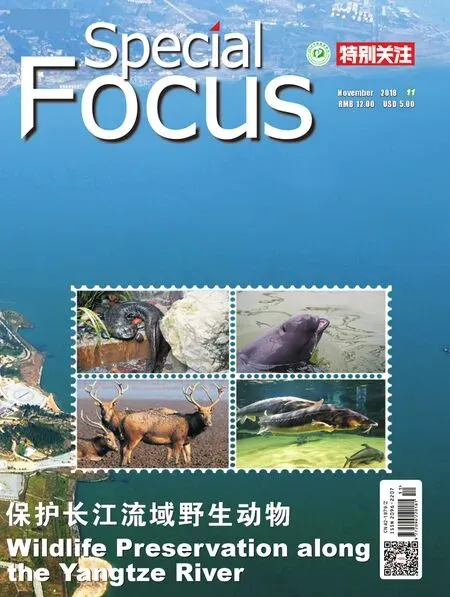China in Hu Run’s Eyes
By Dou Zhenzhen
Having travelled all over the Eurasian continent, Rupert Hoogewerf returned to the University of Durham in the UK in August of 1991 to complete his studies. He showed a strong interest in business and joined Arthur Andersen in 1993, where he worked for seven years. While he was there, he got himself a Chinese name, Hu Run, with the help of his secretary.
Hu Run had a kind of bittersweet feeling at the mention of his seven years in Arthur Andersen.
“The benefit of working in an accounting firm is, you get to know the size of a company through auditing, getting an indepth insider view instead of the view of an outsider.” According to Hu Run, during his three years of auditing work, he acquainted himself with nearly 30 companies,ranging from pharmaceutical companies and traditional manufacturing to entertainment companies and government agencies. By studying the financial reports and data performance of the company, Hu Run was able to get a deep and detailed knowledge of the company’s products and operations.
On one occasion, while doing auditing work on the derivative products of a bank, Hu Run even bought himself many books in order to get a better understanding of the business.

Rupert Hoogewerf (born 1970 in Luxembourg), also known by his Chinese name Hu Run (胡 润), is the Chairman and Chief Researcher of Hurun Report, a research, media and investments business, best known for its“Hurun China Rich List,” a ranking of the wealthiest individuals in China.
“I wanted to know the reasons behind the business and the value it could bring. This experience was a great inspiration for me in founding the Hurun China Rich List.” While talking about his initiative back then, Hu Run remembered the differencemaking moment when the idea hit him.
While working in Arthur Andersen, Hu Run paid for a Chinese teacher to help him improve his Chinese language skills. He asked the teacher to talk about a different topic every time so that the course was comprehensive. On one occasion,Hu Run wanted to know who the“Bill Gates of China” was, to which his lecturer replied,“Sorry, I can’t find anything regarding this.”
“I found that incredible. In such a big country as China, how come we couldn’t find a Chinese version of Bill Gates?” Hu Run was so incredulous that he turned to his colleagues.
“My colleagues in Arthur Andersen are all high-caliber talents from Shanghai Jiao Tong University and Fudan University,who know business in China like the back of their hands and are all highly capable in their work, but even they could not answer this question.”
“They didn’t know who the‘Bill Gates of China’was, which actually inspired me. I mean,maybe I could answer that question. By finding the answer to the question, I can also help my British friends know a bit more about China’s economy of the time.”
Just like that, Hu Run struck his business opportunity.
In 1999, Hu Run launched his first“China Rich List” which was published on the cover of Forbes and earned him some fame. In August of 2000, Hu Run resigned from Arthur Andersen.
For four consecutive years from 1999 to 2002, Hu Run published his lists of the richest people in mainland China in Forbes and gained a huge reputation after that. Since then, Hu Run has gradually accumulated fame and social connections as an independent researcher.
“The production of the list is actually not easy. First of all, I didn’t know people and lacked a social network. I needed to visit a lot of people and contact entrepreneurs. In addition, I was in a strained financial situation,even though the payment for our writing was worthy of one dollar per word then. Since I was not a professional journalist, it was difficult for me to find the right business model.” Hu Run was not without emotions while talking about the hardships during the first stage of his entrepreneurship.
“The figure of one’s wealth was considered to be a personal matter by many people at the time. After I published the list,many entrepreneurs condemned us publicly, because they didn’t want to go on the list. Yet, the list is meaningful and useful, so even though it was not received well at the very beginning, we tried our very best to keep it fair and objective.” Hu Run said.
Having noticed the anxiety shown by China’s middle class towards basic education in the country, Hu Run had made the first university rankings in China,namely“the Most Successful University Alumni.”
“Although some of the most famous talents on the list graduated from prestigious universities such as Peking University and Tsinghua University, 50% of the listed entrepreneurs graduated from“the university of society,”meaning these entrepreneurs earned their“bachelor’s and master’s degrees” from experience instead of school education.Therefore, China’s first and foremost school should be‘the University of Society.’” In Hu Run’s view, a famous school might be a stepping stone for a talented person, but it is not a necessity.

